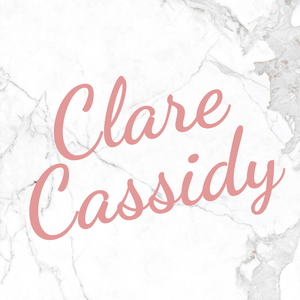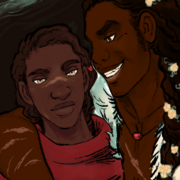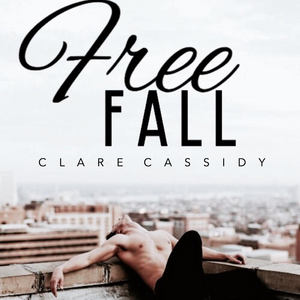"Troye, welcome. I'm Dr. Addison but you may call me Isla. Your previous psychiatrist, Dr. Caulkin, sent over your file from London."
I shook Isla's hand. She was a tall, lean woman with brown hair cut short and sharp hazel eyes. A pair of glasses rested atop her head and she wore a pair of slacks under a long and flowing cream cardigan.
Offering her a smile, I said, "It's a pleasure to meet you."
She gestured to the armchair behind me before sitting down in her own. The high back chairs were made of latte-coloured microfibre and faced one another with a small round table occupying the distance between them. On the table sat a small arrangement of pink and white peonies.
Contrary to what one may think, Isla's office was unconventional for a psychology practice. There was no short cut carpet or metal filing cabinet or leather armchairs, the latter of which I was thankful for as the stiff, dark leather in my previous psychiatrist's office was cold and unwelcoming. It did nothing to help soothe my nerves when I'd first began attending sessions.
In fact, Isla's office was unlike any I'd ever seen. The space was small but had an overflowing bookshelf tucked in one corner, filled with anything but medical textbooks. A large houseplant sat opposite it. There were abstract paintings and personal photographs on the walls and a colourful patchwork rug decorated the hardwood floor. Glass cat figurines were scattered throughout the room. On a small table beside the desk, an expresso machine sat ready to brew.
Isla noticed my observations because she smiled a moment later. "I've found that people are more likely to open up when their physical environment overindulges in stimulation. The process of sharing personal information becomes less daunting when there's already something to distract the subconscious. It's not for everyone but it's certainly better than plain walls and furniture, don't you think?"
"Completely." I agreed, shuddering at the thought of my psychiatrist's office back in London.
Isla took a sip of her coffee and placed her mug back on the table. She'd offered me one when I first arrived but I'd politely declined. She'd handed me a sealed bottle of water instead.
"So, my name is Dr. Isla Addison," my psychiatrist began. "I've been a practicing psychology for nearly twenty-five years and specialising in different types of trauma. I'm sure it goes without saying that this is a safe space and everything you say in here will be for my ears only. I will take notes and they will remain confidential unless circumstances arise where I believe your health may be compromised and need to seek medical attention. Unless that happens, everything said in here stays between you and me. Do you have any questions?"
When I shook my head, she continued. "First, some of my clients prefer to be addressed by their surname. Would you prefer I call you Troye or Mr. Evans?"
"Troye is fine."
"Wonderful." She wrote something down on her legal pad before looking back up at me. "I've read through your previous psychiatrist's notes from the past three years. While I haven't had the time to meet you personally before today, you should know I work a little differently than Dr. Caulkin."
"Oh, how would that be?"
"I've come to favour a holistic approach when assessing patients." Isla explained. "That's not to say you will be treated as a test subject, nor will you be scrutinised in all manner of behaviour and speech. What this means is that I take into account all factors in your life that can lead and influence existing traumas. With me so far?"
I nodded. "I think so. What factors?"
"On paper, disorders and illnesses are very black and white. They examine symptoms, causes, treatment and results. I will be going beyond that. I will be looking into other grey areas of your life in attempt to define existing trauma patterns. This includes mental, physical and social factors."
"That's pretty straightforward," I said in understanding. Then, "One question."
"Yes?"
"You keep throwing around the word trauma. Why?"
Isla looked slightly taken aback. I wasn't sure if that was a good or bad thing. She picked up a considerable manila folder and briefly flipped through it. "Dr. Caulkin included in his notes that you suffered a significant loss of someone dear to you when you were a teenager. He's also mentioned that you were abandoned by another loved one no more than four years ago."
"What does that have to do with trauma?"
Isla cocked a curious eyebrow. She took a moment to study her notes before looking back up at me. "I want to be clear that I respect your previous doctor's diagnosis and won't undermine his clinical analysis. Dr. Caulkin believes you have untreated traumas in your life and while it's easy to draw that conclusion on paper, I make no diagnoses based on my own assumptions."
She crossed one leg over the other, a pair of white Alexander McQueen pumps gleaming in the warm light. Isla fixed her gaze on me and she continued, "It will take more than one session for me to learn how best I can help you. I'd like to wait until we have developed a working relationship between doctor and patient before I make any judgements of my own."
I swallowed the thick lump in my throat. "Okay."
Isla crossed her hands over her knee. "Wonderful. Why don't we begin with the basics. Tell me about yourself, Troye."
Scratching the back of my neck, I let out a nervous laugh. "Not much to tell really."
"I'm sure that's not true."
"What do you want to know?"
"Anything you trust to give me."
Therapy wasn't a foreign concept to me. I'd begun attending sessions a year after I moved to London when a rude awakening made me realise I wasn't as okay as I seemed. That part of my story was long and ugly and something I didn't like to look back on, but it got me to a place where I knew I had to talk to someone.
Dr. Caulkin had been a greying man with rough features. He was stoic and professional but it still took an entire year of sessions before I revealed anything personal to him.
Isla was the complete opposite of Dr. Caulkin. Her office was warm and colourful and she didn't watch me with a scrutinising gaze like so many had held me subject to in the past. It was refreshing, so I took the leap.
"Well," I began. "I was born and raised here in Los Angeles. My parents are the most wonderful people you'll ever meet. My older sister is kind and generous. I've been modelling since I was seventeen. The past four years I spent working in London and I recently came home because I missed my family. Have I missed anything?"
"Do you think you're missing anything?" Isla questioned.
"No?"
She raised an eyebrow.
I cleared my throat. "No."
"Well," Isla said, scribbling down notes with a soft smile before looking back to me. "That's certainly one way to sum up your life in a nutshell. From what I understand, your family is quite renowned. Would you be comfortable talking about them?"
"In what way?"
"Your mother is Nadia Evans, yes?" Isla chuckled warmly. "I used to listen to her records in the eighties. She was my icon. It must be difficult to grow up surrounded by such a limelight from both parents."
"They did everything they could to shelter my sister and I from it."
"Did it work?"
I knew what she was doing but somehow I felt at ease, the words rolling off my tongue as if I had nothing to hide. "A few people found out in elementary school. They teased me for it and that bullying carried into high school. It was only when I made my first real friend that the taunts began to subside."
"Can you elaborate on that?"
I shrugged. "There were people who didn't like who I was or people who only liked me for what I was. I was teased a lot. So was my sister but that's her story to tell. High school was where I first made any real friends and the bullies began to back off."
"Why were you teased?"
She had to have known but she asked anyway. It caught me off guard. Very few people asked for my truth rather than projecting their own. The change in pace was nice.
Before I could even walk, I was labelled by the media a "celebrity child". My parents both had their own individual platforms and when they revealed their relationship to the world before I was born, that fame increased a tenfold. Every significant milestone in my life was documented somewhere in a journalistic archive, the good and the bad.
The 'celebrity' label had been thrust upon me long before I understood the meaning. Now that I did, it made me somewhat resentful of the term.
'Celebrity' and 'famous' fell in the same ballpark. They were the biting words of vicious classmates thrown in my face to undercut my sense of self. They were the media's raw power to conceptualise my worth with no exposition. They were hashtags slapped on Instagram posts to subvert artistic creativity of any designer I modeled for.
Aria had bared the brunt of the backlash our parent's fame induced but I still carried the weight of that superficial legacy on my shoulders like an anchor weighing down a ship.
In my family, I was just Troye. A little kid dressed in his superhero pyjamas with big dreams of walking the runway. To the world, I was the child of eighties superstar Nadia Evans and record producer Scott Evans. I could've been a fairy tale if Cinderella never wanted to try the shoe on in the first place.
Over the years I'd had nasty words thrown in my face. There were people who believed the only reason I had this job in the first place was because of who my parents were. Claire had assured me numerous times that was not the case but it still hurt nonetheless.
The entire duration of my career, whilst not even a decade long yet, was built on the sole purpose of declaring my sense of independence. I loved my family but I had to carve out my own place in the world that wasn't shadowed by their notoriety.
While it usually didn't interfere with my daily routine, I still felt the heavy weight of my identity hanging over me like a dark storm cloud. I just hadn't decided if I was going to rain or come alive with electricity yet.
When I explained all this to Isla, she replied with a simple, "Jealousy. They wanted what you had."
"I was never any different. People just thought I was."
"Do you not see yourself as unique?"
"I grew up in the western suburbs." I deadpanned. "I went to school dressed in jeans and sweaters and ate day-old pizza at the metal lunch tables in the cafeteria each day. I'd do my homework at the kitchen table each night and watch cartoons with my sister on weekends. I was as average as they came."
Isla studied me for a moment before folding her hands in her lap. "I'd like to try an exercise, if you'd be comfortable with that."
I shrugged. "Depends what it is."
"Quite often, the cornerstone of the foundations we build our belief system on stem from the labels society defines for us." My psychiatrist explained. "For example, we strive to adhere to certain standards of beauty to fit an 'attractive' label. We conceal what we believe to be unacceptable traits about ourselves to fall under a 'normal' label. With me so far?"
"I think so."
Isla uncrossed her legs. "One of the most common things I find with my patients is their willingness to concede with standards they don't construct themselves. They accept regulations about their identity because society tells us we must but not why."
I didn't say anything so she continued. "You say you're 'average'. I'd like to know what your definition of average is. If you can, try to describe it in three words."
"Besides the things I just mentioned?" I rubbed a hand over the back of my neck. "Um, I suppose 'average' for me would be...comfort. Ease. And guilt?"
One of Isla's eyebrows twitched and I wondered if I'd said something wrong. The look was gone as soon as it came. She nodded once. "Interesting, but not wrong. May I ask why you chose those three in particular?"
I shrugged. "To be average is...well, it's comforting. You feel as though you blend into the crowd. People can't capitalise on your flaws if they don't see them."
"Good. What else?"
"Ease because you feel at peace with being seen as normal. It's a relief because you don't feel 'seen'. You don't have to work so hard not to stand out."
Isla fiddled with her pen in one hand. "That's an interesting perspective. Though I wonder if it would be a fair judgement to say that it's harder to work at fitting in rather than standing out?"
I swallowed. "I, uh, guess you could say that."
"Because wouldn't you say it's harder to hide parts of yourself rather than let them thrive?"
"Uh, I guess I never thought about it."









![Free Fall [Undying Love #2]](https://us-a.tapas.io/sa/a6/a9870a2a-1bbd-4a47-837a-88820144877b_z.png)

Comments (0)
See all